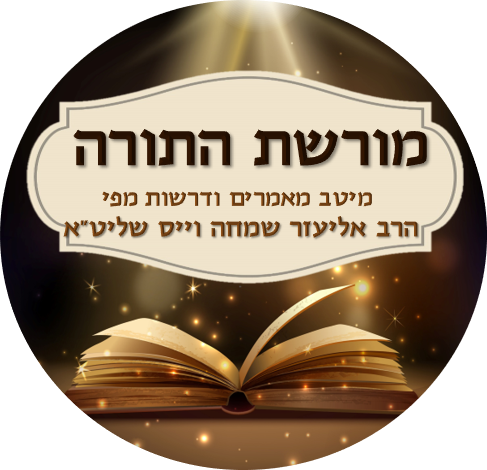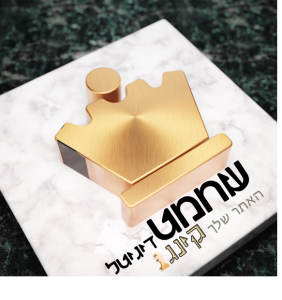The Haftara of Vayeshev
The Haphtarah of Vayeshev
The exact meaning of the word “haphtarah” is not entirely certain. However, according to Rabbi David Abudraham15 (14th century Spain) all the haphtarah of the year are inextricably bound up with the persecutions of Antiochus Epiphanies (168-165 BCE), which preceded the Maccabbean Revolt (Chanukah). R. Abudraham sees the word haphtarah as stemming from patur—to be exempt. R. Abudraham explains that the haphtarah was instituted in lieu of Kriat HaTorah (the Reading from the Torah) due to edicts forbidding the public reading of the Torah. The Sages thus instituted that a portion, thematically similar to the censored Torah portion, be read from the Prophets. By reading the haphtarah one exempts himself from Kriat HaTorah. R. Abudraham does not indicate the precise date of this takanah (rule). Indeed, the author of the Book of Maccabees, when listing the Epiphanic decrees, states:
“And wherever they found the Books of the Law, they tore them up and burned them and if anyone was found to possess a Book of the Agreement or respected the Law, the King’s decree condemned him to death”.
The Maccabees’ references to the “Books of the Law” (Torah) explain why the ban was not extended to the Prophets as well: The persecutors did not view the Prophets as threats to their assimilationist policies in as much as they did not constitute the “Books of the Law”. The Jews would read portions from the unbanned Books of the Prophets in place of the Torah.
When they were again able to read the Torah, they continued reading the haphtarah in addition. The haphtarah passages from the Prophets that are read on Shabbat (which do not coincide with a Festival) are generally chosen from material that relates either to the weekly Torah reading or to a specific date.
Examples of readings tied to a date are: Rosh Hodesh or the Eve of Rosh Hodesh, Hanukkah, Purim, the “Four Parshiyot” that are associated with the first of Adar (Shekalim), with Purim (Zakhor), with the first of Nisan (Ha-Hodesh),and one more reading associated with Passover but read on the Shabbat preceding Ha-Hodesh (Parah). On all these occasions, after the reading of the weekly Torah portion a Torah passage dealing with the specific day is read for maftir, save for Shabbat which fall on the eve of Rosh Hodesh.
There are another ten consecutive Shabbatot on which the haphtarah deals with the particular day and not with the weekly Torah portion. These are the three Shabbatot preceding the ninth of Ab, on which three passages foretelling disaster are read (shalosh shel pur’anut), and the seven Shabbatot immediately following the ninth of Ab, on which seven passages of consolation are read (sheva shel nehamah) The link between the Parsha of Vayeshev and the haphtarah is the subject of the sale of Joseph related in this weeks parsha and the veiled reference to this sale in the portion selected for the haphtarah from the Book of Amos. In the opening verses of this week’s haphtarah, the Prophet Amos accuses certain Jews of having sold the Tzadik (a righteous person) for money and the poor man for shoes. “…because they sold the righteous for silver and the poor for a pair of shoes…” Amos (2:6).
The Palestinian Targum to Genesis 37:28 and most prominently, in Pirkei de-Rabbi Eliezer, chapter 37,) explain that all ten brothers sold Joseph to the Ishmaelites “for twenty pieces of silver, each of them receiving two silver pieces, enough to buy a pair of shoes…”. These accounts interpret the verse in the Book of Amos (2:6) (quoted above) as a reference to Joseph who was sold by his brothers. Accordingly, numerous sources ascribe the episode of the ‘Asarah Harugei Malkhut, the ten Tannaim who had been brutally murdered by the Romans, as representing, in a cosmic sense, atonement for the acts of all ten of Joseph’s brothers.
This haphtarah is not in fact read this year because we have two Shabbatot of Chanukah and special haphtarot are read but it is important to note the anomaly of this week’s haphtarah being that it is the only haphtarah that does not have a verse or at least some word of comfort,, contrary to The Rabbis custom to have some words of consolation even the haphtarah of the three weeks (shalosh shel pur’anut). The exception to the rule is the regular haphtarah reading for Vayeishev.
How can this be explained? Vayeshev tells us of the tragedy of the hatred between Joseph and his brothers. The Rabbis say that G-d will save us from enemies from without but if there is hatred between ourselves, why should He wish to help us?

 שחמט דיגיטל
שחמט דיגיטל